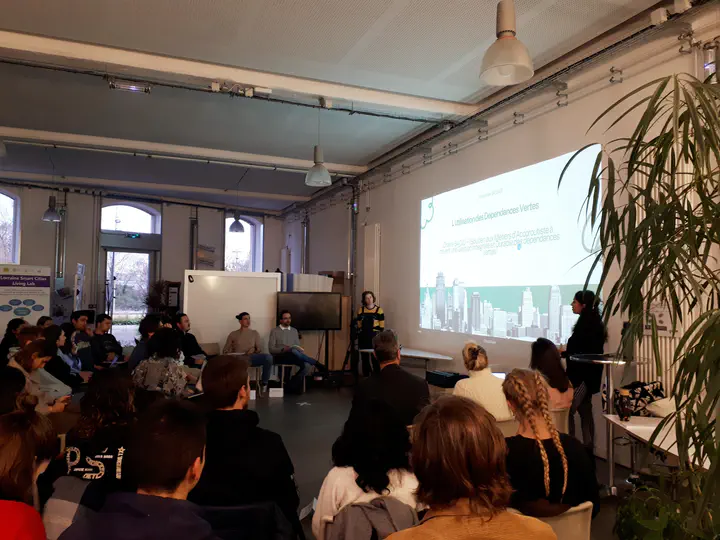💡 Reflection on the roundtable discussion "Perceptions Regarding Green Dependencies"
As part of the Project Management in Complex Environments course module, students at ENSGSI are tasked with working on the topic of road edge maintenance.

In the context of the course titled ‘Collective Intelligence in Complex Environments,’ we have issued a challenge to the final-year students at ENSGSI. The challenge revolves around the design of demonstration devices aimed at altering the perception of stakeholders within a territory regarding green dependencies. The goal is to shift from a neutral or even negative view of these spaces to a perspective highlighting their strong ecological potential by actively involving local actors in the territory.
To kick off this module, students hosted a roundtable discussion to inquire about the experiences of stakeholders. On Wednesday, November 29, the Lorraine Fab Living Lab (LF2L) welcomed Stéphane HARTER (Head of Research and Development, Attractive, Citizen and Ecological City Department, Ecology and Nature Directorate in the city of Nancy), Guillaume Stef (Manager of Green Spaces in the Metropolis of Grand Nancy), and Alexis Cornevin (Manager of Green Spaces and Tree Heritage of the Metropolis of Grand Nancy).
The discussions covered various topics related to the management of green dependencies and green spaces in urban environments, with a particular focus on stakeholder awareness. Here is a summary of the key points.
Public and private metropolises express an increased need for exchanges and sharing of practices among different entities to enhance the management of green spaces. The management of green spaces is constantly evolving, with differentiated approaches based on the characteristics of each space. Perceptions are changing, for instance, by allowing tall grass to promote biodiversity: demonstrators, such as late mowing plots, have been implemented, but results are not yet available. During the Covid period, the absence of maintenance raised questions, indicating a new sensitivity to ecology.
Experts acknowledge the need for increased communication to explain changes in practices, with successful examples such as the evolution in Parc Ste Marie. Gardeners and maintenance agents for green dependencies can act as mediators by explaining methods when working in these spaces. However, road edge management differs from that of more traditional green spaces. Roadside managers must raise awareness among their providers to relay information on the ground. Residents and local elected officials are identified as priority stakeholders, but the level of knowledge among elected officials about biodiversity is sometimes limited. Guests emphasize the need to generate public interest but recognize challenges in communicating on numerous and sometimes unattractive criteria. For example, the issue of waste and pollution is raised, with questions about how to effectively raise awareness.
These discussions highlighted the complexity of urban green space management, emphasizing communication challenges and the importance of the involvement of all stakeholders to promote sustainable practices.
Armed with these insights, students have gained a keen awareness of the issues related to the management of green dependencies. They will present their work on December 20, 2023, to the Terres Touloises Community of Municipalities, where awareness workshops will be organized, aiming to positively influence the perceptions of various stakeholders regarding green dependencies.